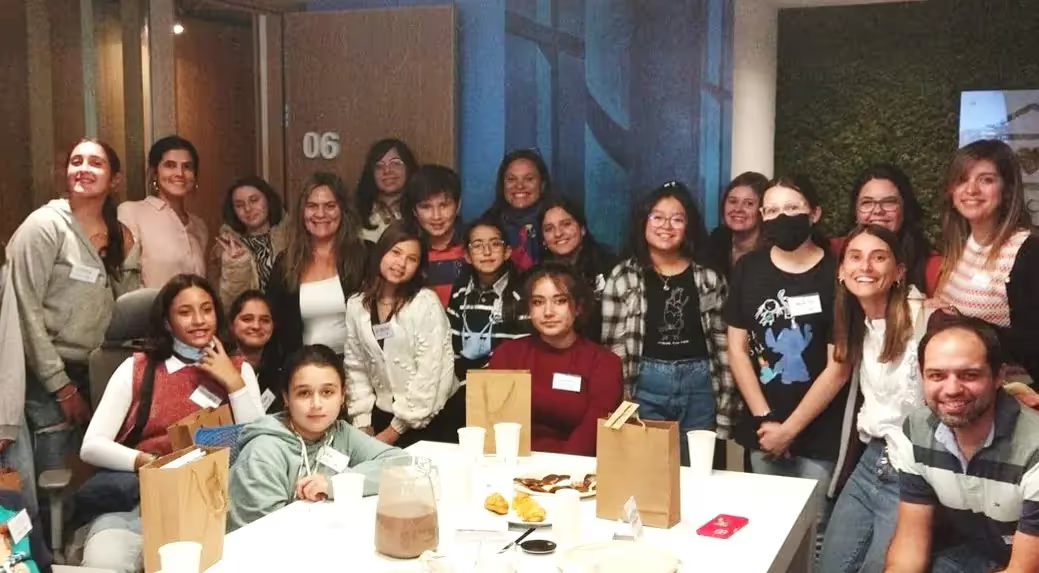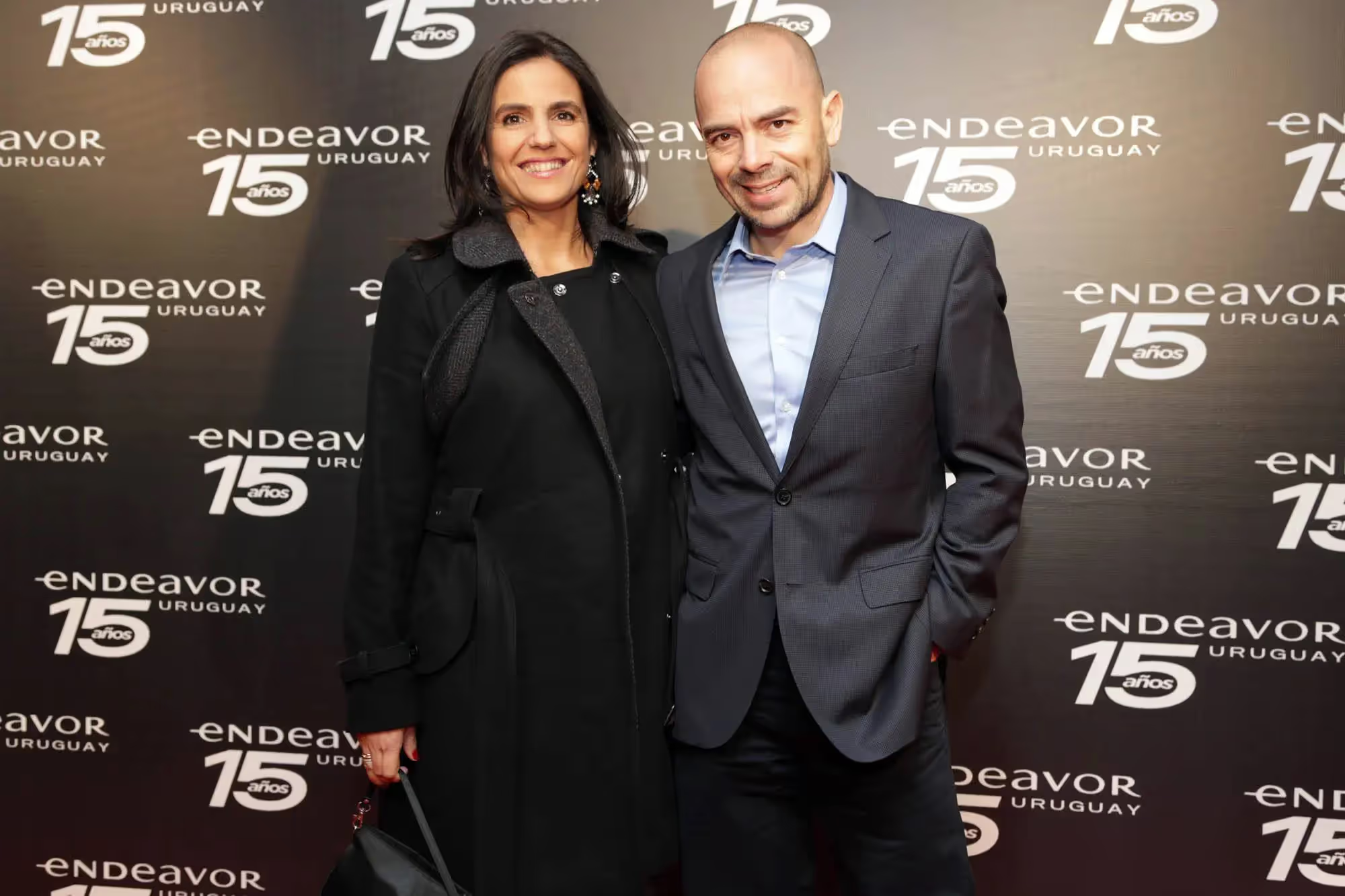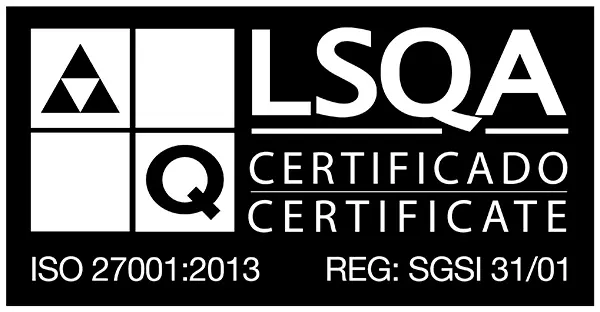As part of Women's Month, at Infocorp, we spoke with our CEO, Ana Inés Echavarren. A talk space where she shared her views on the role played by women in today's technology industry and, above all, an inspiring dialogue that helped us learn how she turned a “deaf ear” to gender prejudice to build an exemplary professional career.
Around the world, many initiatives have emerged that promote the inclusion of women in the technology sector. Without going any further, Girls in Tech is one of them. A program that Infocorp has been part of, and that does a great job of disseminating and promoting the role of women in technology.
However... Why do you think it's still a field associated with men? What value do you place on these initiatives?
In my opinion, this association is a long-standing one. Historically - at least in Uruguay - technology was directly linked to engineering, a field that was always seen as hard, boring and reserved for men. Unfortunately, there was the myth that engineering was not an attractive option for women. The same was true with science.
Fortunately, technological development and the conditions offered by the current market have helped to change this reality. Technology embraces talent, creativity and effort, conditions that have nothing to do with gender. There are plenty of examples. In fact, here in Uruguay we have wonderful women who set trends at the international level and are references in the scientific and technological world.
Precisely, initiatives such as Girls In Tech seek to make this reality visible. Show - through the magnifying glass of outstanding professionals - that the possibilities are there to be exploited. In fact, I think we should encourage the appearance of more programs of this type.

What led you to choose a career in computing and how was your transition to a managerial position, considering that the CEO level is not typically associated with technological profiles?
My choice of career was more by chance than anything else. I was always very curious and liked the world of numbers, mathematics, physics and chemistry. In addition, my way of reasoning simplified my study. So, by decantation, I decided on engineering.
However, at that time I also had to work. Therefore, I chose the shortest Engineering, the one that would allow me to enter the labor market quickly. Computer Engineering met these requirements. So yes, let's just say I also chose it out of convenience. What I didn't expect was to encounter such an exciting world.
And the thing is that programming what everyone can imagine- was only part of the race! In fact, I'll tell you a secret, I never learned to program well in my life. My thing was the business part, the problem solving part. To be honest, I fell in love with it. I also realized that I was good at listening and proposing solutions. I found it exciting to translate a challenge into a technological product.
A short time later, my work ethic and most of all, my luck! they led me to find the right people at the right time. And that's how my first big chance arrived. I did an internship at a company owned by one of my faculty professors and since I spoke English and French - and I was the only one in the office that managed them with some fluency - they sent me to Canada. It was a trip of a few weeks that ended up lasting more than 8 months. There I worked in the Business Intelligence area. Yes, I programmed a lot, but at the same time I enjoyed one of the most comforting experiences of my life.
That trip was revealing, I realized how much I liked having contact with the customer, proposing solutions, managing and, above all, traveling. After Canada, Rio de Janeiro followed and obtaining my degree. But something had changed inside me and it was that desire to turn my career around.
And then?
So I decided to do an MBA, but unfortunately the company where I worked didn't want to pay for it. I looked for another alternative, raised money and enrolled in a course at ORT University. There I became friends with Juan Zangaro, Development Manager at Infocorp, who invited me to work for the company. Shortly after joining, I met Gabriel Colla, general manager at the time and one of the brightest people I had the pleasure of sharing, as well as a generous human being who became one of my mentors. He saw something in me, he saw how hungry I was, the desire to move forward.
Later, with the exchange rate crisis of 2000, the company had to look for new markets and I occupied the position of Development Manager. Juan had to move to one of these new destinations and they offered me the position. At the same time, I started my MBA. All these events were the starting point for me to continue to enrich my knowledge and prepare for my next big change, leading the opening of the company's product area.

You are the living example of reinvention!
It could be said that yes. As I pointed out to you, I am a person who enjoys challenges. Therefore, after my time as a product manager, I decided to change again. I went to work in the company's commercial area, which until then had not finished driving. The problem? I didn't know how to sell! and on top of that I was convinced that I didn't like it. But hey, life surprised me once again and the role ended up enchanting me. There I learned a big secret: the customer buys from a person and earning their trust is the most important thing.
After all this journey, I had the immense honor of being made a member of Infocorp and of sharing a board with 3 impressive mentors, Gabriel Colla, Martín Naor and Andrés Cerisola. With Martín's retirement, they proposed to me my current position, CEO of the company, something that seemed incredible to me. But that also made sense because he knew all areas of the company very well. And here I am, enjoying this experience.
Four important elements stand out in your story: the active search for leadership, the constant reinvention, the place you found in Infocorp as a space for growth and your empathy. In this sense, they told me that you have a habit, you like to be aware of new income and talk to them personally. What are you looking for in those conversations and what are you hoping to achieve?
I think it's essential for new talents to know the company's leaders from day one. Depending on their role, they have more or less contact with me, but I always try to be close to them - with remote work this is a little more complicated. However, the message is clear: it is important for them to know that Infocorp is not just a name, it is a group of people who collaborate and shape the company's sentiment. Infocorp is the result of that process. In this way, it's important for newcomers to internalize that culture. As Gabriel Colla said, working together should be a pleasure. My goal in these conversations is to communicate that to them, to let them know it firsthand.
Also in those small talks, I want to make sure that our actions are in line with our words and that each person feels free to express what they feel. Don't be afraid to ask or suggest. Luckily, most people see it that way and that makes me very proud of my work as CEO.
Are employees encouraged to give their opinion?
With remote work it's a little more difficult. Luckily, there is always someone who asks me questions or suggestions, either by email or when they meet me in the company's corridors. There are also several people that I have identified as leaders that I meet to give me feedback. I do this at least once a year. And their interventions are valuable because they bring freshness to the environment and make people feel heard. A maxim? The doors of my office are always open to hear any questions or suggestions.
As CEO of a major technology company and after having worked in several management positions, have you ever experienced gender barriers? What advice would you give to a woman just entering the world of work?
What worked best for me is to be myself, to be direct. Although over time I learned to soften my personality a little, I never stopped trusting my abilities and I never allow myself to be underestimated. This is something that professionals value, regardless of gender. Of course, there are exceptions. However, I don't think that's the general reality of the region.
Therefore, my advice for women who are just starting out in the world of work is to trust their abilities and demonstrate everything they know and can contribute. Focus on your abilities and talents. At this point, the world understands that women are essential to any company, since we provide a unique and enriching vision. Companies need diversity, and gender shouldn't be seen as a disadvantage, but as a strength.
And how do you position Uruguay, from a corporate point of view, in terms of equality, gender gap, salaries, etc.?
I think there is still work to be done because some statistics reflect that. However, as I said before, today companies in the region are understanding that diversity is synonymous with better results and that gender should not be a conditioning factor. Of course, in some industries that gap may exist much more markedly, but in the technology sector it has been reduced by leaps and bounds. And at Infocorp, we are an example of this progress.
In fact, it is a company where there is no inequality and where women provide a totally surpassing vision. I myself am an example of this. Are there things left to do? Obviously! But the change in recent years has been impressive and the effort being made in that direction is very valuable. We must continue on this path.
I'm going a bit away from the gender issue to ask you another, more general question. What is your view on the future of Fintech? Do you see any technology on the horizon that could generate a qualitative or disruptive leap?
Look, disruptive changes are happening faster and faster, so we can no longer talk about predictable timelines. In the past, you could plan up to 10 years in advance, but today, it's hard to plan for next year. Artificial intelligence will change the way we work, especially on repetitive tasks, but it won't replace people because of the inherent importance of creativity, empathy and human experience. The diversity of experiences and different points of view, together with the interpersonal connection, will always be necessary in a team. Jobs are going to start to change and will become more fun. The most repetitive tasks will be automated, and this will allow humans to provide value from elsewhere. Emotions and what a person experiences play such a strong role that it is difficult for them to be supplanted. That's why I'm not afraid, it's a great opportunity to reinvent yourself.
In addition, we cannot fail to analyze the impact of these technologies on the company's daily life. They must be studied to determine how they can be incorporated to be more competitive and efficient. It is also essential to consider the fine line between good and misuse, and to value any issues of privacy and ethics that may arise.
Finally, I have three unrelated questions, so I'm going to ask you them in an absolutely arbitrary order.
What is your opinion about the humanization phenomenon of corporate brands, where users trust the company's visible faces and spokespersons more than the brand itself?
My experience in sales allowed me to understand that customers buy from people. No to brands. Trust in the seller is the intangible asset they value the most. Of course, there is a symbiosis between the two, but when buying, users choose based on the trust, empathy and passion with which one transmits the value of a product to them. I don't know if this happens in all sectors, but in project companies like Infocorp, the human quality of the team is essential to achieve better sales and collaborations. When we buy from a brand, in reality, we are buying the trust that a person who represents that brand gave us. At this point, it's impossible to deny that companies are made by people.
What skills or knowledge do you think should be taught in basic education?
Kids should understand how a technological process works. It is important to incorporate programming logic into classrooms and teach how to think in a problem-solving way. It is also crucial to know basic aspects of emotional intelligence and emotion management.
What advice would you give to an eighteen-year-old girl who is about to choose a college career?
I would tell him to talk to someone who works in the world of technology. It's normal for people to think that the technology industry is synonymous with knowing how to program, but the reality is that it's much more than that. Thanks to technology, I had the opportunity to travel, meet impressive professionals and understand a lot of businesses. In addition, the industry offers a world of opportunities for women, where work capacity is valued over gender or other issues. It is one of the markets where knowledge and effort are the main engines of success.
If you don't have anyone you know who works in this world, don't hesitate to contact me!




